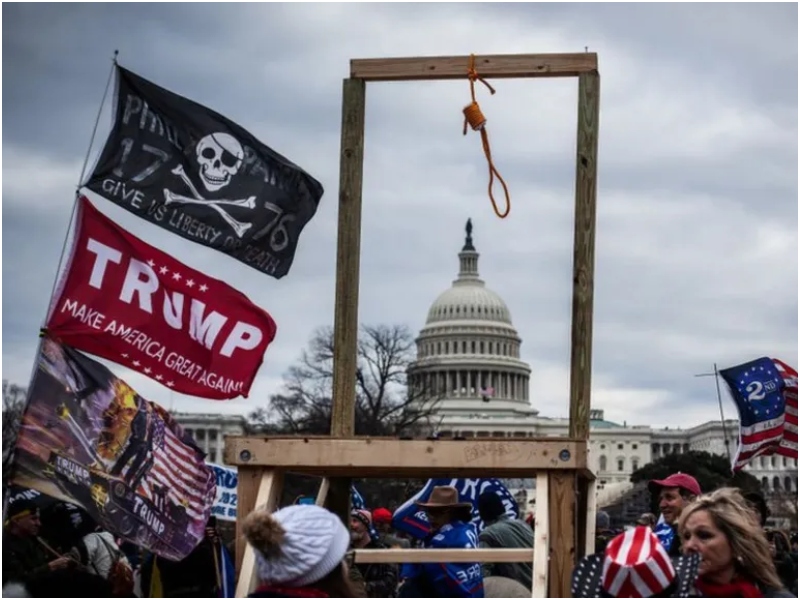On Tuesday, April 16, the Supreme Court is set to delve into a consequential legal battle that could have far-reaching implications for over 300 individuals linked to the Jan. 6, 2021 Capitol insurrection, including former President Donald Trump.
At the heart of the matter in Fischer v. United States is the interpretation of a federal law, the Sarbanes-Oxley Act of 2002.
Enacted in response to financial scandals like Enron, the law targets the destruction of evidence or obstruction of official proceedings related to financial crimes. However, its application in cases stemming from the Capitol attack raises significant questions about its scope.
Joseph Fischer, a participant in the “Stop the Steal” rally, faces charges for allegedly breaching the Capitol during the certification of the 2020 election results.
The Justice Department contends that Fischer’s actions hindered Congress’ certification process, constituting obstruction of an official proceeding.
Fischer, supported by his legal team, argues that the government’s interpretation of the law extends beyond its intended purpose and unlawfully broadens its reach.
The issue has already divided lower courts, with a Trump-appointed judge initially siding with Fischer, only for an Appeals Court panel to overturn the decision, leading to the case’s escalation to the Supreme Court.
The outcome of this case holds significant ramifications. If the Court rules in favor of Fischer, it could prompt a reevaluation of numerous Jan. 6 prosecutions, potentially leading to overturned convictions or reduced sentences.
However, legal experts caution that the majority of cases involve charges unrelated to obstruction and would likely remain unaffected.
Moreover, the decision could have profound implications for Trump’s legal woes. Two of the four counts in a federal indictment against him hinge on the Sarbanes-Oxley Act, alleging conspiracy and actual obstruction of an official proceeding.
A favorable ruling for Fischer could disrupt these proceedings, casting doubt on the viability of certain charges against the former president.
The Supreme Court’s decision, anticipated by June, comes amid heightened scrutiny of Trump’s alleged role in attempting to subvert the 2020 election.
With the Court also set to consider Trump’s immunity from criminal prosecution in a separate case, the legal landscape surrounding the events of Jan. 6 remains complex and contentious.

